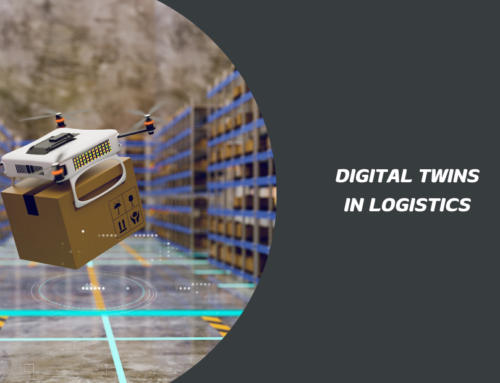SAP, standing for Systems, Applications, and Products in Data Processing, plays a pivotal role in modern supply chain management. As a leading enterprise resource planning (ERP) software, SAP helps organizations streamline their processes across various departments—from finance and human resources to logistics and distribution. This integration is crucial in today’s complex market environments where efficiency, speed, and accuracy are key to maintaining competitive advantages.
The significance of the SAP system in transforming supply chain operations cannot be overstated. By providing an integrated platform, SAP allows companies to manage their operations on a global scale with greater visibility and control. This system not only supports operational efficiencies but also enhances decision-making capabilities through robust data analysis and real-time insights. This enables businesses to anticipate market changes, manage risks more effectively, and seize new opportunities as they arise.
This article aims to delve into the unique features, benefits, and real-world applications of SAP in supply chain management. We will explore how SAP’s core capabilities like integration, scalability, and advanced analytics play out in real-world scenarios, enhancing business operations and driving success. Additionally, the article will highlight how businesses leverage SAP to achieve operational excellence and adapt to the ever-changing demands of the global market.
Core Capabilities: What Makes SAP Essential
Integration Across Modules
One of SAP’s most compelling features is its ability to offer seamless integration across various business functions. This means that different departments within a company can easily share and access information in real-time, from financial data to warehouse stocks. Such integration eliminates data silos, enhances communication, and facilitates smoother workflows, which are critical for effective supply chain management. This interconnectedness ensures that every part of the organization is aligned, which helps in making more informed decisions and responding more quickly to market or operational changes.
Scalability and Flexibility
SAP’s architecture is designed for scalability and flexibility, which are essential as businesses grow and their needs evolve. Whether a company is expanding into new markets, adjusting its product lines, or scaling operations, SAP’s modules can be customized and scaled to meet these changing demands without disrupting existing processes. This adaptability is vital for businesses looking to grow sustainably while maintaining high levels of operational efficiency.
Advanced Analytics
Advanced analytics is another cornerstone of SAP’s functionality that significantly enhances supply chain operations. By harnessing the power of analytics, SAP helps companies process vast amounts of data to unearth actionable insights and predictive intelligence. This capability enables businesses to forecast demand more accurately, optimize inventory levels, and streamline logistics—all of which contribute to reduced costs and improved service levels. Moreover, SAP’s analytics empower decision-makers to identify trends, patterns, and anomalies, which is crucial for strategic planning and long-term business resilience.
Operational Excellence: SAP in Action
Process Automation
SAP excels at automating crucial supply chain processes, thereby significantly enhancing operational efficiency. By automating tasks such as order processing, inventory updates, and delivery tracking, SAP reduces the need for manual intervention, which in turn minimizes errors and speeds up operations. This automation extends across the supply chain, ensuring that from procurement to delivery, every step is optimized for speed and accuracy. The result is not only faster turnaround times but also increased reliability in supply chain operations, which is critical for maintaining customer satisfaction and competitive edge.
Real-Time Data and Insights
The availability of real-time data and insights is one of the most significant advantages offered by SAP. This feature allows companies to monitor their supply chain activities as they happen, providing instant visibility into stock levels, shipment statuses, and production schedules. Real-time data empowers decision-makers to act quickly, make informed decisions, and adjust operations dynamically in response to supply chain disruptions or demand fluctuations. This proactive approach to managing the supply chain can significantly reduce downtimes and ensure that the business can adapt to changes swiftly and effectively.
Risk Management
Risk management is another area where SAP provides substantial support to companies. By leveraging SAP’s robust data analytics and forecasting tools, businesses can predict potential disruptions and implement mitigative strategies in advance. SAP helps identify supply chain vulnerabilities, such as dependency on single sources for critical materials or potential bottlenecks in logistics. Armed with this information, companies can diversify their supplier base, adjust inventory levels, and develop contingency plans, thereby minimizing risks and ensuring supply chain resilience.
Technological Edge: SAP’s Innovations
Latest Technological Advancements
SAP continually integrates the latest technological advancements to keep its software at the forefront of enterprise resource planning. Recent updates have focused on enhancing cloud capabilities, improving user interfaces, and expanding the analytical functions of SAP solutions. These advancements make SAP not only more intuitive and user-friendly but also more powerful in terms of processing large datasets and delivering deeper insights that businesses can use to refine their strategies.
AI and Machine Learning
Artificial intelligence (AI) and machine learning (ML) are now integral components of SAP’s toolkit, transforming how companies forecast demand and manage their supply chains. SAP harnesses AI to automate complex decision-making processes, such as determining optimal stock levels or the best shipping routes. Machine learning algorithms analyze historical data and ongoing operations to continuously improve these decisions over time. The integration of AI and ML allows SAP to offer smarter, more adaptive supply chain solutions that anticipate changes and react in real-time.
IoT Integration
The integration of the Internet of Things (IoT) with SAP has opened new avenues for connectivity and data collection across the supply chain. IoT devices collect vast amounts of data from various points in the supply chain, such as warehouse sensors, RFID tags, and GPS trackers on delivery vehicles. This data is fed into SAP systems, providing unparalleled transparency and oversight. IoT integration helps companies monitor asset conditions, track shipments more accurately, and even predict maintenance needs before breakdowns occur, significantly enhancing operational reliability and efficiency.
Sustainability and Compliance: SAP’s Forward-Thinking Approach
Promoting Sustainability
SAP is deeply committed to facilitating sustainable practices within supply chains. Through its advanced ERP systems, SAP enables companies to monitor and manage their environmental impact more effectively. For instance, SAP’s solutions help firms optimize route planning to reduce fuel consumption and carbon emissions. They also provide tools for managing the lifecycle of products more sustainably, from the sourcing of eco-friendly materials to the enhancement of recycling processes. By leveraging SAP, companies not only adhere to their corporate social responsibility goals but also contribute to the broader agenda of creating sustainable global supply chains.
Ensuring Compliance
SAP aids businesses in meeting stringent global compliance standards, significantly reducing liabilities. The software is designed to help firms navigate the complex web of international trade laws, environmental regulations, and financial reporting requirements. SAP’s compliance modules ensure that companies can easily adjust to new regulations and maintain transparency in their operations. This not only helps avoid costly legal issues but also builds trust with stakeholders by demonstrating a commitment to lawful and ethical business practices.
Conclusion: The SAP Advantage
SAP stands out in supply chain management for several compelling reasons: its ability to integrate across diverse business functions, its scalability and adaptability to various business sizes and types, and its cutting-edge technological capabilities that include advanced analytics, AI, and IoT integration. Additionally, SAP’s commitment to sustainability and compliance ensures that companies using its software can meet their CSR goals and adhere to global standards without compromise. As SAP continues to evolve and adapt to the latest technological advances and market demands, it remains a crucial partner for businesses aiming to achieve excellence in their supply chain operations.









